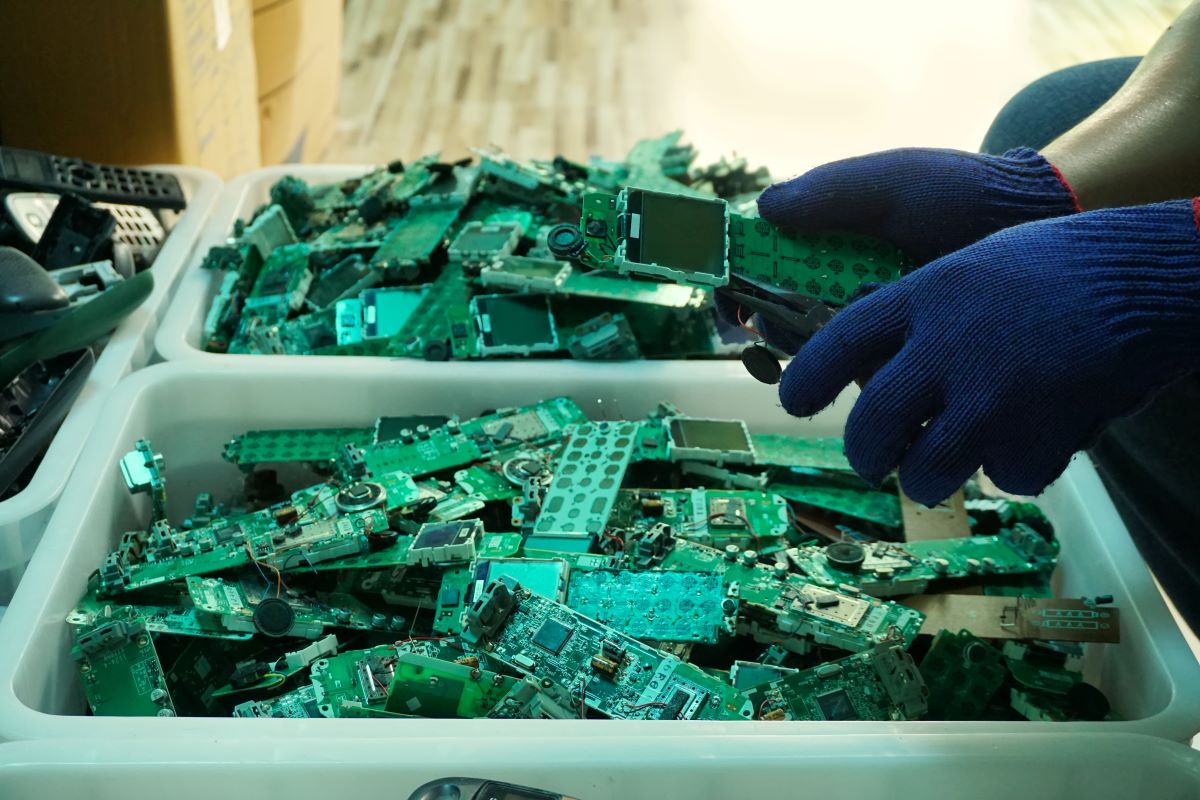
Sims Lifecycle Services repurposed 2.5 million devices during the 2024 fiscal half-year, up 39% from the half-year prior. | Rattanapong/Shutterstock
Global ITAD firm Sims Lifecycle Services repurposed 700,000 more devices in the first half of its 2024 fiscal year compared with the prior-year period, representing the third year in a row of significant growth in device volume.
SLS parent company Sims Limited on Feb. 20 reported financial results for the six months ending Dec. 31 (representing the first half of the company’s 2024 fiscal year).
SLS reported repurposing 2.5 million devices during the 2024 fiscal half-year, up 39% from 1.8 million units during the same period a year earlier. It’s nearly double the 1.3 million units the company processed during that period in 2022.
The growth in device volume contributed to SLS operating profits (earnings before interest and taxes) growing 18.6% year-over-year to hit 8.3 million Australian dollars ($5.4 million U.S.). In a media release on the financial results, the company noted “effective cost control measures” also helped drive profit during the period.
The profit growth came after earnings tumbled in the first half of the prior fiscal year, which company officials attributed to inflation and depressed resale device pricing. Although inflationary pressure persists, the company reported the resale market has shifted favorably since then: “Resale prices stabilized and commenced returning [to] more normal levels,” Sims reported.
In fact, SLS was Sims’ only business segment that saw operating profits increase during the financial period. The company attributed the other segments’ results to “lower trading margins in Sims Metal and continued inflationary pressures.”
In an earnings call with investors, Sims CEO Stephen Mikkelsen spoke optimistically about the ITAD division’s trajectory.
“SLS made significant progress in the first half, and I expect this to continue in the second half,” he said. “From a strategic perspective, I believe SLS has proven it is a business model that is profitable and valued by its customers.”
“Its strategy is sound and grounded,” Mikkelsen added, noting that current tailwinds for the company “are only getting stronger.”
Mikkelsen also touched on the company’s push into the data center decommissioning space, projecting further increases in decommissioning work paralleling growth in the data center industry.
“Artificial intelligence is predicted to drive the growth of data centers at an even more rapid rate than the extremely fast pace of the last five years,” Mikkelsen said. “These data centers have issues with sustainability, which SLS helps solve and now has to deliver this at scale, and its recent implementation of micro factory technology provides one of the building blocks to achieving this.”
Sims also reported it moved its Precious Metals division out of SLS and into Sims Metal last summer, a move that reflects the ITAD operation’s “strategic focus on repurposing data centers.”
In the U.S., SLS operates ITAD and data center processing centers in Atlanta; Chicago; La Vergne, Tennessee; Roseville, California; Tampa, Florida; and Tucson, Arizona.

